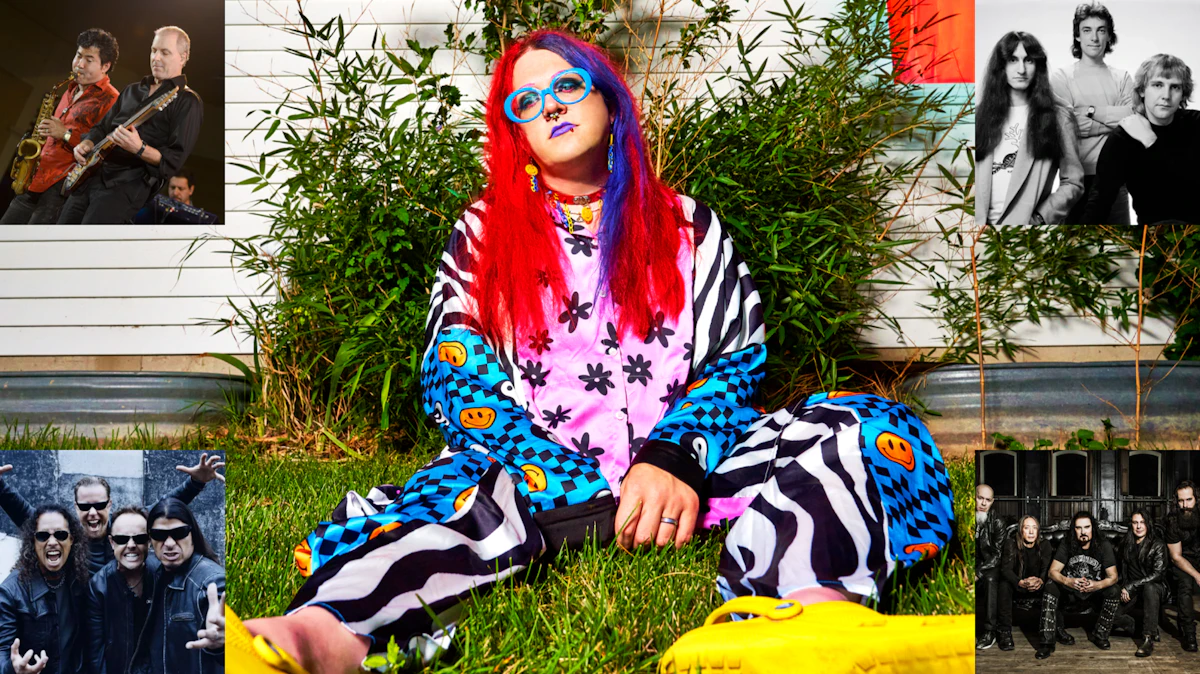Although Fire-Toolz certainly has a signature sound, and it is easy to recognize a Fire-Toolz song when it hits, Fire-Toolz records are consistently full of surprises. This is the joy of Fire-Toolz: The music is like going to a spiritual arcade! Which heartstring will this turn tug? What hardcore poignancy will I find around this corner? If this all sounds crazy then I don’t know what to tell you. You just need to listen to “Soda Lake With Game Genie,” with its secret pain-bursting rain, oozing spiky gelatin, and new beatitudes—or “Smiling At Sunbears Grooming In Sunbeams,” which is the most moving song about a cat I have ever heard in my life.
Fire-Toolz and I spoke about the elements that came together to form the Fire-Toolz universe, including her equal love of “crazy electronic music” and prog-rock, her eclectic cast of collaborators, and her youth full of house shows and parachute pants.
This interview has been condensed and edited for clarity.
What was the first album or song that you remember making a big impression on you artistically?
The first time I heard a full album that transported me to an entirely different universe was Dream Theater’s Images and Words. That’s a really important album for me. The guitar solos and the synth patches that were being used affected me emotionally the most. Certainly they’re all virtuosos, and the drumming and the technical skill is out of this world—that’s what anybody would say about Dream Theater. But for me, it was how emotionally moved I was by the melodies and chords, especially the more ballad-like songs.
Were there any subcultures or scenes you were into when you were younger?
I did not fit in with anybody until my mid-teens. I was playing music in a band, and I was the youngest member. I grew up in Maryland, about 20 minutes south of Annapolis in a smallish town. Annapolis had a music scene at the time that I was really involved in. I was 14 and playing with 18, 19, 20-year-olds. So my crowd from 14 to 19 was much older people mostly at small shows—house shows and rec halls and churches. Nü-metal was happening and there was a lot of crossover into goth, and there was the rave crowd, too. A lot of parachute pants, brightly-colored hair, lots of jewelry, makeup. I felt very at home.
Is there anyone who helped you develop as an artist, aside from the people in the bands you were playing in?
My father wasn’t a musician, but he was very supportive. He would take me to concerts and get me into music. I was born in the mid-80s, so arena rock and hair metal and glam was happening at the time. My dad liked a lot of guitar rock and prog. My parents would show me the good bands in that crowd (we weren’t really into Poison). My parents didn’t influence me skill-wise, but they definitely showed me a lot of good music. To this day, the stuff they got me into shows up in the way I make music.
I had spurts with drum and guitar lessons. With drums, most of that was learning to read music and become more well-rounded by learning a little bit of jazz and a little bit of classical. I hated all that. I wanted to play Metallica. And in order to play Metallica, I would listen to the records and just play it at home. Nobody was teaching me that. Guitar lessons were a bit more useful because I learned more music theory that way. But with drums, it was just so natural.
